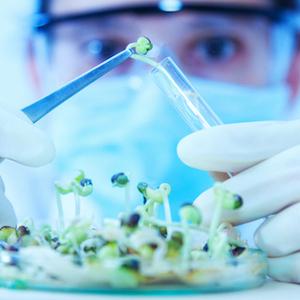Scientists are humans, too. And, just like other humans you know, some of them aren't very good at their jobs. There are three main ways in which scientists can mess up.
First, some scientists feel as if they have something valuable to say on any topic under the sun. (Far too often, it's politics.) Like those suffering from the dreaded Nobel Disease, they act as if their true expertise in one subject gives them wide latitude to speak boldly on every subject. They are wrong.
Consider a poll of scientists who belong to the American Association for the Advancement of Science (AAAS). While countless studies have shown GMOs to be safe, only 88% of AAAS scientists agree. It should be 100%. The fact that it isn't means 12% of scientists haven't the foggiest clue what they're talking about regarding biotechnology. Similarly, only 68% of scientists think pesticides are safe (despite that both conventional and organic agriculture use pesticides), and only 65% of scientists favor more nuclear power (even though Generation IV nuclear reactors are meltdown-proof and the waste can be safely stored in Yucca Mountain).
Second, some scientists are ideologically committed to certain causes, regardless of the evidence. The poster child for this is Gilles-Éric Séralini, an anti-GMO ideologue whose research linking GMOs and/or herbicides to bad health effects is usually published in low-quality journals with few publication standards. His conclusions are supported neither by the weight of evidence nor by the expert opinions of the globe's best scientists.
Third, some scientists are incapable of separating scientific fact from science policy. This problem is particularly common among climate scientists, many of whom believe that their research on global warming mandates specific policies, such as cap-and-trade. However, scientists are neither legal nor economic experts, and they often fail to take such considerations into account. (Cap-and-trade, for instance, has not worked well in Europe because it became a magnet for corruption.) Intelligent people of goodwill should be able to agree on science while disagreeing on policy. Yet, too many scientists adhere to an overly simplistic worldview; i.e., you're either "with us or against us," and there's no room for policy negotiation.
Thankfully, the vast majority of scientists are honest, hardworking people who are trying to do a good job, even if they don't. As a general rule, it is best not to assume that scientists (or anybody else, for that matter) are shills or dishonest. Instead, apply Hanlon's Razor: "Never attribute to malice that which is adequately explained by stupidity."




